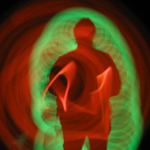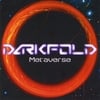Telephone Telepathy and the emergence of Paranormal Studies as a legitimate scientific field
That said, I find it odd that this story is called "Scientists angered by telephone telepathy study." How do you get angry at a study? Well, I guess it happens when the study reveals something that you'd rather not contend with/believe in.
Many people report experiences in which they were thinking of a friend or relative who happened to phone them at that moment. Most scientists regard this as coincidence, reinforced by forgetting the many times we think of friends who never ring, but Dr Sheldrake has tried to test whether it is actually down to genine telepathy.
He asked 63 volunteers to select four friends, one of whom would then be selected at random to ring them at a pre-arranged time. On picking up the phone, the subject would say who he thought was calling.
By chance alone, people should get the right friend 25 per cent of the time, but Dr Sheldrake found that they actually did much better than this, with a success rate of 40 per cent in 571 tries. Callers were often several miles away, sometimes thousands of miles away, and distance did not affect the outcome.
In a follow-up trial, the participants were videotaped to ensure they were not getting messages from their callers. The four subjects tested in this way did even better, picking the right caller 45 per cent of the time.
Dr Sheldrake claims the results as good evidence for genuine telepathy, at least between some people who know each other well. "The odds of this being a chance effect are 1,000 billion to one," he said.
You'll note that he used people who are friends with each other. This is a good way to tease out a measurable respone. People wishing to sabotage the idea of psychic abilities could easily choose strangers and then point out that nobody was able to indentify who was calling them. I think the ability has something to do with being "on the same wavelength" with certain people. It might not have anything to do with "psychic abilities" -- it could be a subtle vibrational similarity that people are picking up on unconsciously. But words like "paranormal" are grab-bags for all sorts of con-artists as well as legitimate phenomena that haven't been adequately explained/measured.
The so-called "skeptics" out there who casually dismiss anything that gets labelled as "paranormal" are fools. We need rigorous testing before we can logically assess the truth behind the claims. Rejecting something out of hand just because it was labelled a certain way by certain people is not science -- it's bigotry. Look at their pathetic and delusional rationalizations for the results of this study:
It was also possible that people got clues from the time of the call. "If the subject knows four people well, they will know who tends to be on time, who tends to be late and who early," said Richard Wiseman, Professor of Psychology at the University of Hertfordshire. "If they call me at 11.02 not 11, I'd likely guess it was going to be my late friend."Um, yeah. Your "late friend" only calls when it's not a round number? What the fuck is he talking about? He's grasping at straws here folks, and it's kind of sad to see. What a loser. Just wake the fuck up and do some tests you idiot! Oh I forgot, he'll be able to sabotage his results using little tricks like I described above.
The second study reported yesterday was led by Peter Fenwick, a consultant neuropsychiatrist who is interested in near-death experiences and "end of life experiences" that occur when people die. He thinks these may provide evidence for an afterlife.Though his work is not yet published, he has collected data in hospices on apparently paranormal phenomena that occur at death. He says that many dying people experience visions of dead friends and relatives welcoming them to an afterlife, and that the living relatives of dying people are "visited" by them at the moment of death, reporting that they are dying but that all will be well.
Dr Fenwick has also documented uncanny events such as clocks stopping and bright lights at the moment of death. "One of commonest forms is a luminous object, composed of light and love, which hangs above the body. This is often interpreted as the soul leaving the body."
Again, sceptics reject this all as nothing but anecdote, hallucination and pure coincidence.
Again, skeptics reveal themselves as unwilling to accept the idea of an afterlife or of observable phenomena that are not easily explainable in conventional terms. They have stuck their fingers in their ears and they've closed their eyes and they're screaming, "Lalalalalaaaahh!! I can't hear you!"
Labels: paranormal




0 sick little monkeys said:
Post a Comment
Links to this post:
Create a Link
Home